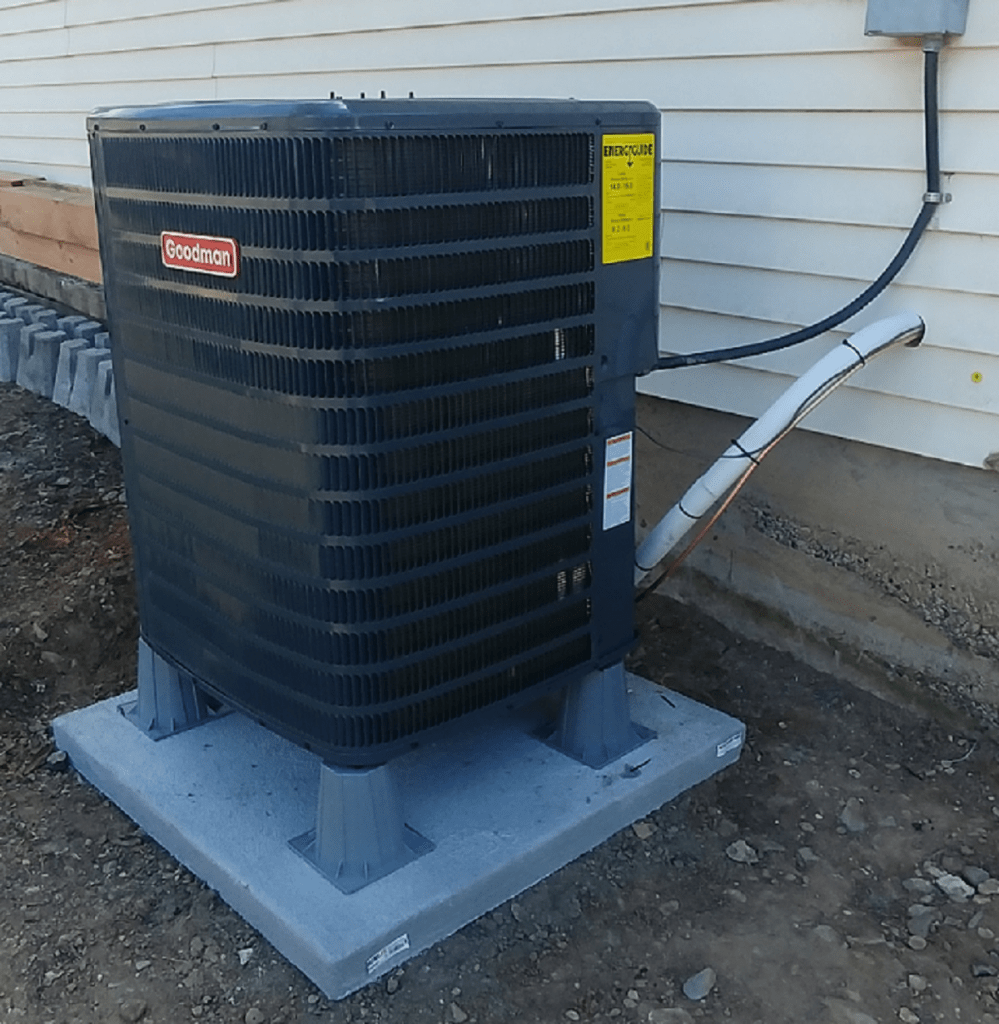A heat pump can cool a house in hot weather, even at 100 degrees. A heat pump that is correctly sized for your home will provide excellent cooling in almost any climate. That’s because a correctly sized heat pump will be sized according to many factors, which include but are not limited to:
- Square footage of the home
- Insulation in the walls, attic, and crawl spaces
- Number of windows and R-Factor
- Area of the country (even those areas that get 100 degrees or more)
- Number of people in the home (people put off a lot of heat)

A heat pump can cool just as well as an air conditioner. Sizing a heat pump is not much different than sizing an air conditioner. Heat pumps cool your home with the same principles as an air conditioner. A house that requires 36K BTUs of cooling will cool with a 36K BTU heat pump or a cooling-only unit (which most people call an air conditioner).
A heat pump’s cooling temperature range is still determined by the size that fits the house. Pick the right BTU size, and you will have all the necessary cooling. In some areas of the country with high humidity, it’s important to not oversize. It will cycle off too soon, and you won’t get rid of the humidity.
I live in the high desert. We can oversize our equipment slightly because we have low humidity. It’s a little bit of an advantage when we want to cool our homes quickly.
How Do You Determine The Right Size Heat Pump
Heat pump sizing is critical. Companies sizing equipment correctly use what the HVAC industry calls the Manual J. It’s a form (actually a book) that asks all the right questions to correctly size heating and cooling equipment to cool to the desired temperatures.
I’m not suggesting that you do your own calculations; I just wanted you to see that Manual J is for real. It comes with all the necessary manual J worksheets. You can click on this Amazon link (ad) and see they are not cheap.
I found this really cool online Manual J calculator. You will enjoy this………. and it seems to be free.
On the other hand, I know for myself that I’ve done enough of the same type of jobs repeatedly that I know what works and what doesn’t, and I don’t do any new construction. If I did new construction, I would do heat loss calculations.
I understand that some of my fellow HVAC contemporaries will balk at that sort of talk, but after 45 years of doing this, you gain a gut feeling about what works.
But it would be best if you didn’t accept a heat load or loss calculated by some estimator’s gut feeling. Have it done correctly with the manual J, or get a 100% money-back guarantee. Nothing is worse than a battle with attorneys when that 100-degree summer day rolls around, and you can only cool your house to 80 degrees.
How Cool Should My House Be If It’s 100 Degrees Outside?
With all conditions set correctly, you should be able to cool your home to 70 degrees in hot summer weather. Think about the freezers and refrigerators in your favorite restaurant. They are designed to reach low temperatures year-round.
So, a home must be designed to cool to the desired temperature.
When outdoor temperatures climb to 100 degrees Fahrenheit, it becomes increasingly difficult for any heat pump or air conditioner to achieve the comfort levels that some people are accustomed to enjoying.
But the same rules of home efficiency and amount of BTUs apply. I know of friends who love the cold year around. They set their thermostat at 67 degrees in the summer, and the AC cools below 70 degrees in 100-degree weather.
It’s all about how well a home is insulated. Do trees shade the home? How are windows situated in regard to the position of the sun? How many people live in the home? If you use a Manual J, you will be amazed at how much heat a human body adds to the load of cooling a home.
What Is The Temperature Output Of A Heat Pump?
The temperature output of a heat pump is relative to the temperature in the home.
If your heat pump is all tuned up and running at it’s prime then as a rule of thumb, the temperature coming out of the registers should be about 18 degrees colder than the air returning to the furnace.
A more accurate place to measure this temperature is at the furnace. Subtract the temperature leaving the furnace from the temperature of the air going into the furnace.
So if you home is 72 degrees the air coming out of the registers should be in the 54 degree range.
What Is The Cooling Efficiency Of A Heat Pump In Summer?
The cooling efficiency of a heat pump in summer is usually measured by its SEER rating (Seasonal Energy Efficiency Ratio) The SEER rating is a calculation of the cooling output over a typical cooling season, divided by the energy it uses in Watt-Hours.
Heat pumps with higher SEER rating are more efficient. Our government is continually mandating higher SEER ratings to conserve power.
As new technologies developed modern heat pumps have advanced features like variable speed fans and compressors where the output of the heat pump modulates according to the need instead of simply being on or off.

